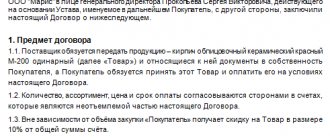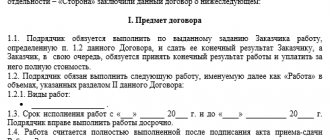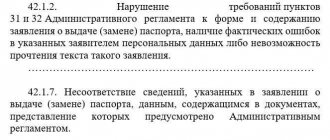Home / Law / Trade
Back
Published: 10/13/2021
Reading time: 12 min
6
1233
In 2021, amendments to the Regulation regarding retail trade came into force. The new rules change the provisions on the remote sale of goods. Current federal laws have increased penalties for repeat offenses, including correctional labor.
FREE CONSULTATION WITH A LAWYER
Tel.
+7 (800) 302-65-54 Free in Russia
In Russia, new trade rules have been established for 2021, including Sanitary Pins, Federal Law No. 2300-1. Regulatory legal acts regulate retail trade, putting forward requirements for entrepreneurs and imposing liability for violations.
- 1 Basic rules of retail trade
- 2 What is a retail contract?
- 3 Sales receipt
- 4 Emerging nuances in trading
- 5 Lack of a cash register
- 6 Responsibility for violations
- 7 Rules for trade in non-food products
- 8 Rules for the sale of food products
- 9 Rules for trade and provision of services in 2021
- 10 Liability for violations in retail trade
- 11 Basic provisions of Federal Law No. 112 in the field of trade and private household plots (personal subsidiary plots)
Basic rules of retail trade
Rules for trading basic types of goods are available here
Decree No. 55 of January 19, 1998 (with new amendments and additions in 2021) prescribes rules for stores for servicing and selling products. The act is an addition to the bill on the protection of the rights of buyers and refers to the second mandatory document for execution.
The resolution regularly undergoes changes and additions, since it came into force 20 years ago. In 2021, an amendment was made to the law on distance selling of goods and peddling trade. The document clarifies the concept and rules that allow a citizen to buy products outside of stores.
It is noteworthy that off-site trading has previously hampered the development of online trading.
The legislator has adjusted the list of technically complex products and today updated trade rules are in force:
- the customer does not have the right to demand a similar replacement of the product;
- The sales consultant's badge may not have the organization's seal on it.
The Trade Law specifies the requirements and rules for retail sales in relation to the following categories:
- Food;
- textile materials;
- complex products from a technical point of view;
- perfume;
- cosmetic preparations;
- Jewelry;
- pieces of furniture;
- medicines;
- chemical products, including pesticides;
- Construction Materials;
- animals and plants;
- household chemicals;
- used items;
- automobile and motorcycle equipment;
- other.
Watch the video: “Scheme of deception in the Magnit store.” Shocking truth"
https://youtu.be/MNv6T8aUusg
The Federal Law on Trade states that the buyer is an individual entering into a transaction to satisfy immediate needs. The main requirement is the absence of re-sales, rental transactions and other methods of generating income. The seller's party can be an individual entrepreneur or LLC, but not an individual.
What consumer restrictions no longer apply?
The new rules gave buyers more opportunities to get acquainted with information about a product, namely to search for and receive “any information in any form from any source.”
This means that the store no longer has the right to prohibit the consumer from photographing the product in public places. Previously, sellers made comments to buyers if they took photographs of the goods. At the same time, they referred to the fact that “this is prohibited by the store’s internal rules.” Now such an argument is unacceptable.
Rospotrebnadzor draws attention to the fact that from January 1, any consumer, in the event of any obstacles on the part of the seller, can safely refer to clause 2 of the Sales Rules and has the right to record on a smartphone the violations encountered at the point of sale.
What is a retail contract?
Trade rules in 2021 require the conclusion of an agreement between the store and the buyer. The document is a cash receipt or sales receipt, and another document confirming the fact of purchase is also allowed. However, the bill, with amendments and other additions, allows the consumer to make claims about the quality of goods without a receipt.
Please note: proof of purchase is provided by testimony from witnesses or information from surveillance cameras. The legislator of the Russian Federation recognizes the fact of the transaction through oral agreements at the time of transfer of money for a product or service.
Goods purchased on credit or in installments do not require the issuance of a sales receipt. Confirmation of purchase is an agreement between the financial institution and the borrower. The date the document is signed is the moment the warranty period comes into force.
Cash receipt
The rules for selling goods at retail provide for two calculation options:
- cash;
- bank card.
Regardless of the method of payment, the seller is obliged to issue a cash receipt containing the following information:
- information about the legal entity;
- individual tax number;
- CCP number;
- transaction information;
- date and time of purchase;
- the price of the product;
- imprint
During the transfer of the product, the seller cancels the check by tearing or stamping.
The presence of a sales document has equal conditions with a cash register statement. In accordance with the rules of retail trade in 18, only in some cases it is allowed not to be issued. If the receipt does not contain any information, the seller is obliged to attach a second payment document.
This applies to the sale of the following types of goods:
- products of the textile and fur industry;
- complex technical models;
- precious metals;
- animals and plants;
- Construction Materials.
Note: in accordance with the current legislation, the store must have a price list for the assortment and a price tag for each product. The premises must be equipped with a consumer corner with a mandatory list of documents.
Price tag rules are available here
New rules for distance selling
We can say that for sellers of goods remotely, in accordance with Resolution No. 2463, both new preferences and new responsibilities have appeared.
Online stores, in accordance with the new trade rules, from 2021 have the right to demand from the buyer when returning jewelry, technically complex goods and means of transport (clauses 41, 45, 51 of the Rules):
- presentation of the returned product in salable form, while maintaining its consumer properties;
- providing documents or other evidence confirming the fact of the purchase.
And, accordingly, they have the right to refuse to accept goods returned without complying with the above conditions.
In turn, sellers during distance selling in accordance with Resolution No. 2463 are obliged to:
- In any case, return goods represented by vehicles, jewelry and technically complex goods, even if they are returned in good quality.
- Confirm the fact of concluding a purchase and sale agreement immediately after receiving a message from the consumer about the intention to make a purchase (clause 14 of the Rules).
This confirmation must include the order number or another way of identifying it, allowing the consumer to familiarize themselves with information about the concluded sales contract, as well as its terms.
- In general, hand over the goods to any person who has provided the seller (in this case, rather, his representative - for example, a courier) with information with the order number, unless otherwise provided by the sales contract or the provisions of the law (clause 20 of the Rules).
At the same time, as Rospotrebnadzor points out in recent clarifications on the application of new trade rules (LINK), the seller has the right to provide in the sales contract conditions under which the ability to receive goods by third parties will be limited - for example, if we are talking about the delivery of expensive goods. A completely justified norm, and quite applicable within the framework of any loyalty policy.
A rule has also been established according to which, if the seller was unable to deliver the goods to the consumer due to the fault of the second, and at the same time ensured compliance with the terms established by the contract, the goods are re-delivered - within new terms agreed with the seller (taking into account the provisions of the purchase agreement). sales). On the one hand, this is a certain preference for the seller. On the other hand, it is still an obligation, since it will still be necessary to deliver the goods, albeit repeatedly and on “preferential” terms (including only agreeing on terms, while there is no question of costs).
In many cases, the sale of goods is carried out in a separate way. Resolution No. 2464 also introduced a number of innovations in relation to it.
Emerging nuances in trading
The sales statement is presented upon the first request of the buyer. A receipt is issued in any format, but in the proper form - the presence of an imprint of the company's seal, the signature of the cashier. A free form of printing indicating the details of the enterprise is allowed.
This year, no amendments have been adopted at the legislative level regarding cash and sales receipts. But, according to information from the newspaper “Accounting. Taxes and Law”, in 2021, a provision is expected to be adopted that changes the requirements for receipts and the rules for issuing them.
No cash register
In Russia, trading is permitted using cash register equipment that allows customers to count. The rules of trade and service apply to all stores, as well as supermarkets.
This technique must meet a number of requirements:
- The one-piece body of the device is marked with an identification number.
- Availability of a new fiscal disk.
- The equipment panel must be equipped with a clock and a screen that displays information about the operation (amount received, change).
- Supply of cash registers with paper tape for printing payment receipts.
Similar conditions in trade are presented at a bank terminal for settlements with individuals using a non-cash payment method. For this purpose, the management of the organization is obliged to sign a service agreement with a financial institution. The check dispenser is connected to the terminal.
Regulatory acts allow the absence of a cash register if a trading company pays UTII or an individual entrepreneur uses a patent taxation system. A similarity to a sales receipt is documentation confirming the conclusion of an agreement for the provision of a service or the purchase of goods.
Note: for small businesses, such legislative relief is beneficial, since the costs of purchasing cash register equipment and its maintenance are reduced. However, despite this preference, experts advise issuing sales receipts.
An additional mitigation for small businesses is the possibility of retail trade without accompanying papers. This applies to UTII payers working on any taxation system. However, this year the Government of the Russian Federation is preparing a package of updates regarding cash register equipment used in retail trade.
Summary
New trade rules under Resolution No. 2463 affect almost all key retail segments - grocery, non-food, online sales and through automated devices, peddling trade. The corresponding regulatory act replaced several government regulations that regulated legal relations in each of these areas of retail trade.
In each segment regulated by the new resolution, it is possible to observe for the seller both the establishment of certain new preferences - not provided for in the regulations that have become invalid due to the publication of the resolution in question, and the definition of a number of new responsibilities. Likewise, a number of new preferences have also appeared for consumers, as well as restrictions in interaction with the seller.
Where and how can you get a copy of a cash receipt, in what cases it may be useful.
Let's figure out whether it is possible to confirm expenses with an electronic check when filing a 3-NDFL declaration.
Is it necessary to use CCP https://onlain-kassy.ru/normativ/kom/kkt-pri-sdache-v-arendu.html when leasing residential and non-residential premises.
Responsibility for violations
Organizations or individual entrepreneurs carrying out monetary settlements with customers in hard currency or by non-cash method are required to issue checks for payment for goods. Printing out the receipt is allowed only through an official machine that has passed state registration. Conducting sales without a cash register is strictly prohibited.
Mandatory documentation is issued:
- when selling goods;
- provision of paid services;
- payment for previously performed activities.
In the absence of a receipt, regulatory authorities have the right to impose penalties, including administrative liability.
Supervisory authorities monitor entrepreneurs regarding the use of cash register systems. The authorities monitor payments through online cash registers, analyze the reliability of information, as well as accounting for the organization’s profit in trade.
Failure to comply with established rules in the field of trade and in the absence of a cash register is fraught with fines.
In accordance with Article No. 14.5 of Part 2 of the Code of Administrative Offenses of Russia, the sanctions indicated in the table are provided for individual entrepreneurs and organizations:
Table 1.
| Type of violation according to the Administrative Code | Punishment against an authorized person in office | Collection for legal entities and individual entrepreneurs in trade |
| Non-use of equipment according to calculations in situations provided for by the legislator | ¼-½ of the receipt amount, but not less than ten thousand rubles. | ³/4 – 100% of the settlement amount, but not less than 10 thousand rubles. |
| Working on a cash register that does not meet the requirements of Article No. 4 of Federal Law No. 54 with updates dated May 22, 03 | 1500-3000 rub. | 5000-10000 rub. |
| If the capacity of the cash register is violated under Article No. 4.2 of Federal Law No. 290 | sanctions up to three thousand rubles. | penalty in the amount of up to ten thousand rubles. |
| Failure to issue a cash receipt for goods in electronic format | fixed fine of RUB 2,000. | 10,000 rub. |
| Refusal to issue a receipt for goods at the request of the buyer in cases provided for by the legislator | Two thousand rubles. | 10,000 rubles |
List of inspection bodies with their area of responsibility and list of imposed sanctions
Sanctions for non-use of cash registers came into force in 2021. Penalties provided for entrepreneurs for not using online cash registers began to apply on 02/01/17.
Rules for trade in non-food products
The procedure for selling non-food products in 2018 did not change.
The main requirements, as in previous years, include:
- public provision of information about the name of the store and location address;
- presence of signs to the entrance to the retail outlet;
- installation of external signage;
- Availability of badges for sales consultants indicating the first and last name, position, organization;
- correct price tags on goods;
- assortment price;
- quality certificates attached to special products;
- Availability of store operating hours on the information board;
- compliance with sanitary, fire and environmental standards;
- sale of goods in accordance with laws on the protection of customer rights.
Please note: amendments to the current federal law abolished the obligation to have a receipt when making claims.
Relaxations for sellers
The main preferences that sellers received in accordance with Resolution No. 2463 include:
- Possibility not to provide at the visitor's request:
- book of complaints and suggestions;
- shipping documentation.
Note that in the catering industry (which is regulated by law separately from retail, but is still close to many of its segments in essence, and therefore the rules in force there always deserve attention), the use of the Guest Book and the offer is still mandatory, despite the fact that there New standards for interaction between supplier and consumer have also been adopted - established by Government Decree No. 1515 dated September 21, 2020. As was the case with Decree No. 2463, these standards came into force on January 1, 2021.
- The right not to carry out free loading of large goods onto the consumer’s car if the second one himself decided to take away the corresponding goods (without ordering delivery).
Of course, in order to increase consumer loyalty, the store can also offer the corresponding service. It is clear that for this it will be necessary to put some additional funds into the wage fund of the employees of the trading enterprise - who, one way or another, will have to be distracted from their main work to assist customers in loading goods.
- The right not to exchange technically complex goods that have a warranty of 1 year or more.
The list of relevant technically complex goods still applies to the one established by Decree of the Government of Russia dated November 10, 2011 No. 924.
- The ability not to issue a sales receipt to the consumer when selling jewelry made of precious metals or precious stones.
That is, in all cases you can limit yourself to only issuing a cash receipt.
- Possibility not to provide a similar product for temporary use during the warranty repair period if repairs are carried out:
- gas, gas-electric household equipment for cooking;
- jewelry and other products made of precious metals or precious stones.
At the same time, the legislator also established a number of additional obligations for sellers.
Rules for the sale of food products
Grocery trade is subject to an extensive list of norms and requirements. According to the rules of the current year, a retail outlet must be registered with the tax authorities.
In accordance with the regulations, the entrepreneur is obliged to:
- assign a name to the outlet and indicate the scope of activity;
- strictly comply with the current legislation of the Russian Federation;
- serve customers correctly - issue a receipt, have a cash register or cash register, set up a consumer corner, and more;
- display products in such a way that the client can familiarize himself with the composition and price;
- store and sort according to the established temperature conditions;
- employees are hired with sanitary books.
Operating personnel must comply with sanitary conditions.
The following basic requirements apply to food products sold:
- prohibition on sale after expiration of the shelf life;
- whole package without visible damage.
Compliance with sanitary and hygienic standards, rules of trade and the place of sale allows you to avoid fines, since for violation of laws liability is provided for officials and legal entities.
Note: the entrepreneur must set the appropriate temperature setting in the food boutique. This is prescribed in regulations and SanPiN to ensure the safety of the goods. In this regard, the points are equipped with climate control equipment.
Other innovations that you should pay special attention to
If we talk about other innovations of the Rules under Resolution No. 2463, which have a narrow focus, then we note, in particular:
- The provisions of paragraph 35 of the Rules, which do not require sellers carrying out pre-sale packaging to necessarily indicate the number or name of the weigher on the packaged goods.
In turn, such requirements were provided for in clause 34 of the Rules, approved by the previously effective Resolution No. 55 of January 19, 1998.
At the same time, it remains necessary for the seller to indicate information about the name, weight, price per unit of measurement of the product (or information about weight, plumb line price, packing date and expiration date).
- The provisions of paragraph 43 of the Rules, according to which, when transferring a car, motorcycle or trailer to the buyer, the seller is obliged to familiarize the buyer with information about the rules for the efficient and safe use of the vehicle, as well as maintaining it in a usable condition.
- The provisions of paragraph 71 of the Trade Rules, establishing a number of responsibilities for gas stations.
In accordance with this paragraph, when selling fuel, the seller must, at the buyer’s request, provide him with a copy of the fuel quality document (passport) certified by the owner of the gas station (or the person who operates the gas station). This document must contain, among other things:
- name of the fuel manufacturer;
- name of the oil depot;
- the address from which the fuel was shipped directly to the gas station that sells it in accordance with the quality document;
- information about the size of the certified batch of automobile fuel, as well as the date of its shipment.
For violations of the provisions of the new resolution No. 2463, the seller bears administrative responsibility in accordance with the provisions of the Code of Administrative Offenses of the Russian Federation.
Rules for trade and provision of services in 2020
Rospotrebnadzor exercises control over enterprises engaged in providing services to the population, including in the field of food trade. This year the amount of penalties remained unchanged.
For failure to comply with or violation of current trade rules, the entrepreneur faces liability under the Administrative Code. For example, for evading sanitary and hygienic standards in public catering, sanctions in the amount of 3,000 to 30,000 rubles are imposed on individual entrepreneurs.
If the controlling authority has repeatedly applied punishment to the store, then there is a risk of suspension of activities for three months. Rospotrebnadzor imposes similar measures on retail outlets that pose a danger to life and health, i.e., they violate safety rules.
Note: the information stand with documents should be located in an accessible place. The entrance group acts as such areas. Additional information to buyers orally is allowed.
Liability for violations in retail trade
Employees of the federal supervisory service conduct checks to ensure compliance with the rules and regulations of retail trade.
If violations are detected, the following measures may be taken against the entrepreneur:
- A disciplinary reprimand, expressed in the issuance of claims to an official or manager, or the dismissal of the seller.
- Monetary obligations involve deduction from wages of the amount of damage caused to the organization or the buyer.
- The onset of civil liability consists of the deduction of a fine or compensation for harm caused to the consumer by court order.
- An administrative obligation involves the payment of money in the amount of the price of the goods.
- Criminal prosecution is a situation in which the guilty citizen pays sanctions and is involved in community service. Additionally, a person may have their freedom of movement restricted or isolated from society. If the violation comes from the store management, then 100% seizure of goods is allowed.
In practice, administrative penalties are most often used. Such responsibility is based on educational measures against offenders. This helps prevent relapse.
Based on the draft law on trade rules, penalties are applied in the following forms:
- fine;
- issuing a warning;
- confiscation of a product or goods;
- arrest;
- involvement in correctional measures;
- deprivation of license;
- deportation if the person is a foreign citizen or does not have a passport.
Please note: violation of trade norms entails the imposition of sanctions in the amount of 3 to 25 minimum wages, regardless of the form of ownership.
Rules for registration of price tags
In retail trade, it is equally important to follow the rules for designing price tags . If they do not comply with the form approved by the Government, or if any of them have the wrong price, this can also lead to fines.
To draw up a price tag correctly means to place on it information about the name of the product, its type and price per weight or unit (necessarily in rubles). According to the rules, price tags are allowed both on paper and on any other medium - the main thing is that the information is clearly visible. For example, prices may be indicated on a slate board, electronic or illuminated display. In all cases, the design must be clear and uniform.
On our website you can always find out how to correctly draw up a price tag, free of charge, or fill out and print price tags online.
In a store, this document is considered a public offer, and the seller is obliged to sell the product exactly at the price that is listed in it. Failure to comply with this condition, as well as failure to comply with the rules for issuing price tags, is considered a gross violation of the law. If the price on the price tag and at the checkout do not match, this can lead to administrative sanctions, even if the store simply did not have time to change the labels.
When selling books, as well as when selling books, price tags are not needed. When peddling goods, you must have a price list indicating the names and prices of the goods. The price list is certified by the signature of the person responsible for its preparation and the seal of the seller.








